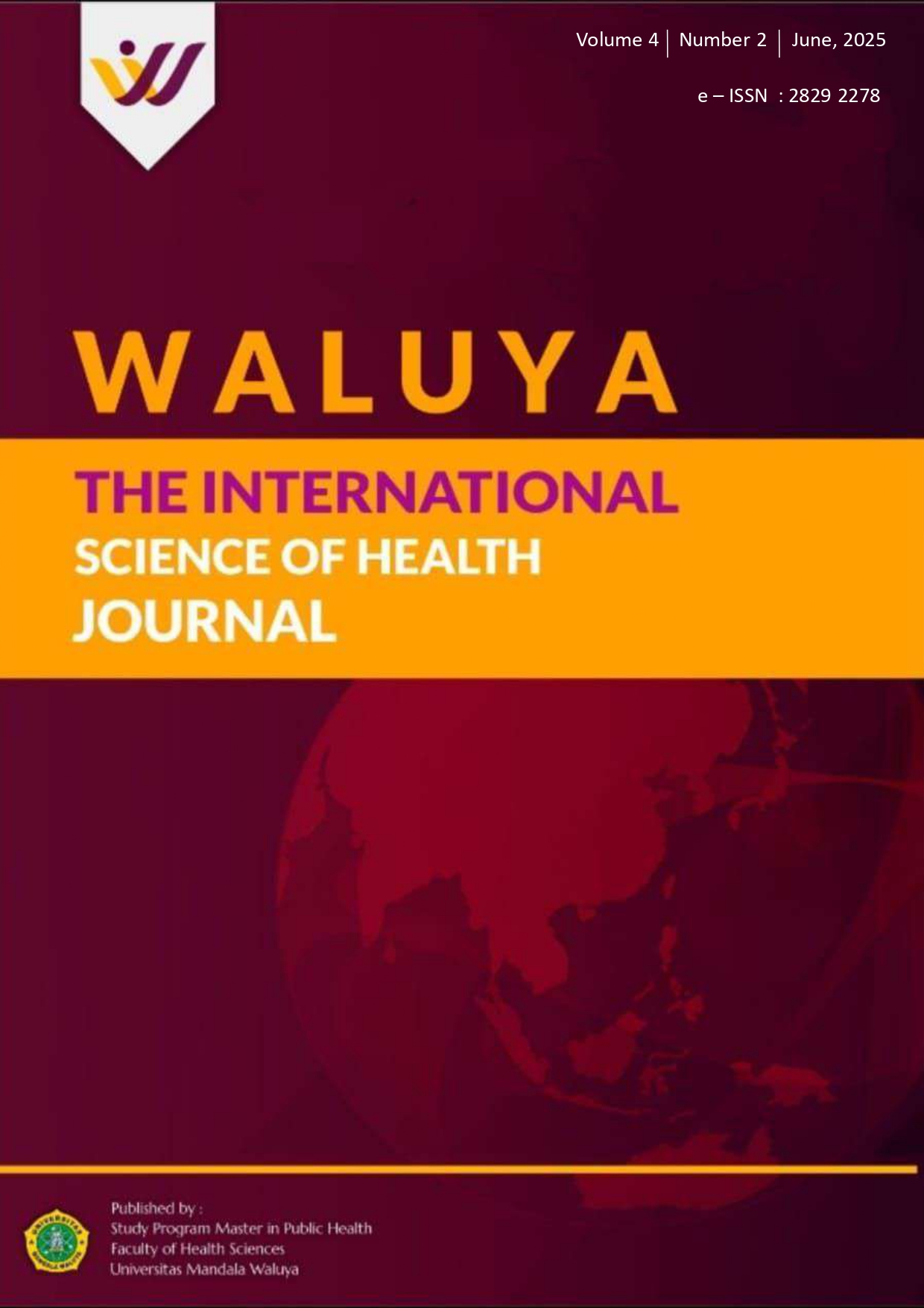Balancing Mind and Body: The Impact of Mental and Physical Demands on Nurse Fatigue at Benyamin Guluh Hospital, Kolaka Regency
DOI:
https://doi.org/10.54883/0cscz483Keywords:
Mental Demand, Physical Demand, Nurses' Fatigue LevelsAbstract
Introduction: Based on the results of observations, it shows that the workload of nurses is quite high, where according to information from the head of the room, some nurses complain of fatigue and visible changes in mood, sleep disturbances, lack of enthusiasm and decreased concentration while working, which are part of the signs and symptoms of fatigue which are possible due to the load. work, it is known that the treatment room at Benyamin Guluh Hospital is still implementing group treatment for all diseases.
Method: This type of research is quantitative research with a case control research design. The population of this study consisted of 136 people who served as nurses in treatment rooms (VIP & VVIP, Class I, Class 2 & 3, Postpartum and ICU). The sample in this study was taken using a simple random sampling survey method, totaling 101 respondents using the Lemeshow formula.
Result: Statistical analysis shows that there is a significant relationship between mental demands and the level of fatigue (p value = 0.003, calculated X² = 8.979 > X² table = 3.841), with a contingency coefficient (ϕ) of 0.381. There is a significant relationship between physical demands and the level of fatigue (p value = 0.009, X² calculated = 6.803 X² table = 3.841).
Conclusion: There is a significant positive relationship between Mental Demand and Physical Demand and the level of fatigue in nurses at Benyamin Guluh Hospital, Kolaka Regency.
Downloads
Published
Issue
Section
License
Copyright (c) 2025 Waluya The International Science of Health Journal

This work is licensed under a Creative Commons Attribution 4.0 International License.







